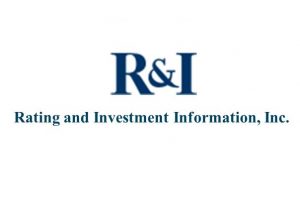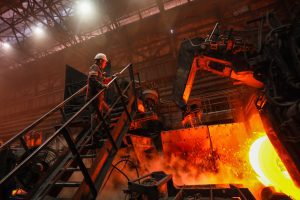
Rinat Akhmetov with a fortune of $7.6 billion topped the rating of the richest businessmen in Ukraine, according to the website of Forbes Ukraine.
According to the updated rating, his fortune as the richest in the list of Ukrainian businessmen has increased from $2.8 to $7.6 billion. Now Akhmetov is ranked 330th in the ranking of the richest people in the world. Its largest assets are Metinvest ($3.3 billion) and DTEK Group ($2.1 billion).
The second place was taken by businessman Victor Pinchuk. Since June 2020, his fortune has grown from $1.4 billion to $2.5 billion. Of this amount, $800 million is real estate, $700 million is money, and $500 million is Interpipe.
Kostiantyn Zhevaho is third in the rating. His fortune increased from $1.1 billion to $2.1 billion. His largest asset is Ferrexpo ($1.4 billion).
The list includes Ihor Kolomoisky with $1.8 billion, Hennadiy Boholiubov with $1.7 billion, Petro Poroshenko with $ 1.6 billion and Vadim Novinsky with $1.4 billion.
Forbes Ukraine estimates Novinsky’s fortune in June 2020 at $810 million.

The international rating agency S&P Global Ratings has confirmed the long-term sovereign ratings of Ukraine in foreign and national currency on the global scale at “B” level, ratings on the national scale at “uaA” and short-term ratings at “B”, the outlook for long-term ratings is stable.
“Ukraine’s growth, balance of payments and public finances exceeded our expectations in 2020. The adequacy of reserves has improved, which provides protection against possible adverse external events, including further delays in the payment of concessional loans,” the agency explained the rating confirmation on Saturday night.
At the same time, S&P noted that epidemiological considerations continue to pose a serious risk.
The agency indicated that it could raise the ratings over the next year if Ukraine’s external liquidity indicators and the consolidation of state finances are better than projected today, including as a result of a more active economic recovery.
At the same time, the ratings could be downgraded in the event of disruptions to concessional financing from international financial institutions or from capital markets, which would call into question the government’s ability to meet its debt service obligations, S&P said.
“Such disruptions may occur if the government abandons key reforms, such as ensuring the independence of the National Bank of Ukraine (NBU), which acts as a monetary authority and regulator of the financial system,” the message reads.

JSC “Khmelnytskoblenergo” made a clean sweep of the “Activity” ratio in the rating “Transparency and financial sustainability of state-owned enterprises in Ukraine”, created by Institute of Economic and Social Reforms (INEKO), based in Bratislava, Slovakia. Khmelnytskoblenergo beat the competition of 50 SOEs badly, securing the 1st place with the 9.2 pts. (out of 10), while the 2nd place got only 7.0 pts.
The rating was created by two think tanks, Institute for Economic and Social Reforms in Slovakia (INEKO) and the International Center for Policy Studies (ICPS), Ukraine. US Embassy in Ukraine and SlovakAid provided support for the project.
According to the methodology of the rating, the “Activity” ratio demonstrates “the efficiency of a company in its everyday business operations” and consists of Working Capital Turnover Ratio and Accounts Receivable Turnover Ratio.
Khmelnytskoblenergo also finished 8th on the “financial sustainability” and 6th on the “transparency” scale among the 50 companies analyzed.
The evaluation criteria for the Transparency scale were, according to the rating methodology, transparency and access to information, economic indicators, public procurement and property, human resources policy, ethics and conflict of interests, grants and charity policy.
According to Oleg Kozachuk, Acting CEO of Khmelnytskoblenergo, this is the recognition of the Khmelnytskoblenergo efficiency: “That’s the result of 4 years of hard work of the whole team – company’s management and almost 3,000 employees”.
Rating “Transparency and financial sustainability of state-owned enterprises in Ukraine” has been created as a part of the “Strengthening democratic stability of key state institutions in Ukraine” project by International Center for Policy Studies (ICPS) and Institute of Economics and Social Reforms in Slovakia (INEKO) with the support of US Embassy in Ukraine and SlovakAid.
JSC “Khmelnitskoblenergo” Electricity distribution service operator (DSO) in Khmelnytsk region, 70% of the company’s shares belong to the state, other 30% – to private legal entities and individuals. The company’s net profit in 2019 amounted to UAH 85.7 million, which is more than the profit of all state electricity DSOs in Ukraine combined. Dividends on the state share for 2019 amounted to about UAH 30 million.

President of Ukraine Volodymyr Zelensky ranks first in the rating of the most influential Ukrainian officials, other top five officials also include Head of the President’s Office Andriy Yermak, Chief Presidential Assistant Serhiy Shefir, as well as Interior Minister of Ukraine Arsen Avakov and Prosecutor General Iryna Venediktova.
The results of the research ‘Rating of Influence of Ukrainian Officials’ were announced by Lev Bondarenko, an analyst of the Ukrainian Politics Foundation /UP Foundation at the press conference held at Interfax-Ukraine.
According to him, more than 50 experts took part in the research, the questionnaire was formed of 130 participants-officials and among the criteria assessed were influence of the position held by the officials, directly their activities and connections and their team effectiveness. The research was conducted using the questionnaire survey during September 2020.
Bondarenko said that top 30 ranks of the rating of influence of Ukrainian officials include mainly representatives of the President’s Office, the Cabinet of Ministers and other civil servants that in the public eye.
In turn, the Head of the UP Foundation, a historian, political expert Kost Bondarenko presented an analytical report related to the rating of influence of Ukrainian officials.
“A lot has changed during the year. A lot of people who were considered influential at that time resigned and new influential actors appeared, thus the power became less amorphous, more monolithic,” he said.
Bondarenko said among the external players that influence the situation in Ukraine are the U.S. Department of State, the G7, the IMF, Israel, George Soros and Russia.
“We looked close at people who influence the president and his entourage … Andriy Yermak is attempting to become the closest confidant of the president, while other team members oppose him … Today we should talk about financial and industrial groups, not about classical oligarchs. But still the representatives of the Ukrainian domestic capital influence very actively the situation in Ukraine, and are somewhat a weak counterweight to the offensive of multinational enterprises,” he said.

Japan Rating and Investment Information, Inc. (R&I) has upgraded Ukraine’s foreign currency issuer rating from B to B+, rating outlook is stable.
“When fiscal consolidation efforts to date and enhanced resilience to external shocks are also taken into account, economic and fiscal conditions are expected to recover in 2021 and beyond,” R&I said in a Thursday press release.
R&I said that the International Monetary Fund (IMF) financial support for Ukraine, together with loans from the World Bank and the European Union (EU), will help stabilize the government’s funding, which R&I views favorably.
R&I believes that the improved political and social stability under the leadership of President Volodymyr Zelensky will allow the government to focus on rebuilding the economy.
R&I said that among other positive moments is that foreign reserves are on the rise, standing at $28.8 billion as of end-July 2020, which covers 4.9 months of imports. Gross external debt is declining as a percentage of GDP. As of end-March 2020, the ratio was 75.8%. With external debt maturing within one year falling to 29.3% of GDP, the short-term external debt to foreign reserves ratio declined to around 1.6x from more than 2x seen until the previous year.
There is little concern over the government’s foreign currency liquidity, R&I said.
The banking sector has improved profitability. Supported by growth in deposits, the sector also maintains stability on the liquidity front.
“R&I will follow their [government and National Bank of Ukraine’s] efforts to ensure financial stability, as the impact of the coronavirus is anticipated to emerge going forward,” the agency said.
In R&I’s view, containing infections, reinforcing the healthcare system and rebuilding the economy are top priorities for the government’s fiscal policy.

Ukraine in May 2020 reduced steel production by 10.4% compared to the same period in 2019, to 1.638 million tonnes, but climbed from the 15th to 13th place in the ranking of 64 countries, the main global manufacturers of these products, compiled by the World Steel Association (Worldsteel).
In May, a drop in steel production was recorded in most countries of the top ten, except for China and Iran. At the same time, the largest decline in steel production was recorded in India, by 39.1%.
In May, the top ten steel producing countries were as follows: China (92.267 million tonnes, an increase of 4.2%), Japan (5.916 million tonnes, a drop of 31.8%), South Korea (5.387 million tonnes, 14.1% down), the Russian Federation (6 million tonnes, 4.8% down), India (5.767 million tonnes, a decrease of 39.1%), the United States (4.790 million tonnes, a drop of 36.6%), Germany (2.850 million tonnes, 18.9% down), Iran (2.350 million tonnes, an increase of 8.9%), Turkey (2.272 million tonnes, a decrease of 25.8%) and Brazil (2.188 million tonnes, a drop by 22.6%).
They are followed by Vietnam (1.949 million tonnes, more by 11.4%), Taiwan (1.730 million tonnes, 10.6% less), Ukraine (1.638 million tonnes, 10.4% less), Mexico (1.450 million tonnes, 13.2% less) and Italy (1.250 million tonnes, less by 43.6%).
In May, 64 countries produced 148.775 million tonnes of steel, which is 8.7% less than in May 2019.
© 2016-2025, Open4Business. All rights reserved.
All news and diagrams placed on this Web site is made for internal use. Its reproduction or distribution in any form are welcome in case of placing a direct hyperlink to a source. Reproduction or distribution of information which contains Interfax-Ukraine as a source is prohibited without the written permission from the Interfax-Ukraine news agency. Photoes placed on this site are taken from open sources only; rightholder are welcome to make demands to info@open4business.com.ua , in this case we are ready to put your copyright to a photo or replace it.